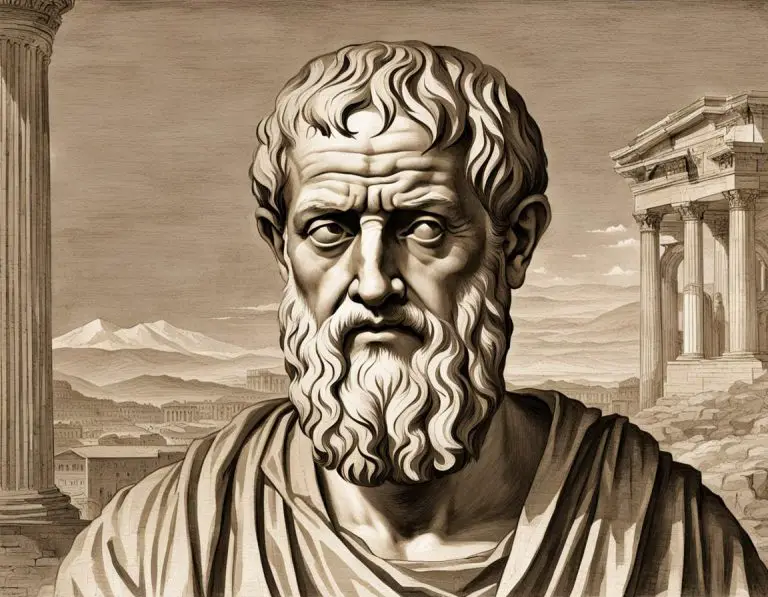The Doctrine of Anamnesis
The doctrine of Anamnesis, a fundamental concept in Plato’s philosophy, explores the idea that knowledge is innate within us and that learning is actually a process of recollection. Plato suggests that our souls existed before our physical bodies and that they have encountered the Forms, or perfect universal concepts, in a previous existence. According to this belief, we have an inherent knowledge of these Forms, and learning merely serves as a means to trigger our memory of them.
Plato uses the famous allegory of the cave to illustrate the concept of Anamnesis. In the allegory, prisoners are trapped in a cave, seeing only shadows on the wall, which they mistake for reality. When one prisoner is freed and exposed to the outside world, he gradually remembers the true Forms that he had forgotten. This analogy highlights Plato’s view that enlightenment comes from within, as individuals awaken to the knowledge that is already within them.
Preexistence of the Soul
In Plato’s philosophy, the concept of the preexistence of the soul plays a central role in understanding the nature of human beings. According to Plato, the soul is eternal and exists long before it enters the physical body. This notion suggests that our souls have a timeless existence that predates our earthly life, adding a profound layer to our understanding of self and identity.
Plato believed that the soul is immortal and goes through a cycle of birth and rebirth, known as reincarnation. This idea of the transmigration of souls implies that the soul gains knowledge and wisdom through its various lifetimes, ultimately striving for perfection and enlightenment. By contemplating the preexistence of the soul, Plato encourages us to delve deeper into questions about the purpose of our existence and the eternal nature of the self.
The Principle of the Good
The Principle of the Good in Plato’s philosophy serves as a central tenet that underpins his entire metaphysical framework. According to Plato, the Good represents the highest form of reality and is the ultimate source of all existence and knowledge. It is the transcendent principle that illuminates the realm of Forms and provides the foundation for understanding the nature of the universe.
Plato posits that the Good is not just an abstract concept or a moral ideal, but rather a dynamic force that imbues the world with order and harmony. By striving to align oneself with the Good, individuals can achieve enlightenment and reach a state of pure intellectual contemplation. For Plato, the pursuit of the Good is not merely a philosophical exercise but a transformative journey towards self-realization and the realization of ultimate truth.
Source of All Existence and Knowledge
In Plato’s philosophy, the Principle of the Good is central to his understanding of the universe. According to Plato, the Good is the ultimate source of all existence and knowledge. It is the highest form of reality and the origin of all other Forms, providing the framework for understanding the world around us.
Plato believed that the Good illuminates all other Forms, allowing them to exist and be known. By grasping the Good, one can attain true knowledge and understanding of the world. It serves as the pinnacle of the Forms, guiding individuals towards enlightenment and wisdom. Plato’s concept of the Good as the source of all existence and knowledge underscores the interconnectedness of reality and the importance of seeking truth and virtue in the pursuit of philosophical understanding.
The Myth of Er
The Myth of Er, found in Plato’s Republic, is a tale that explores themes of justice and the afterlife. In this myth, Er, a soldier who was thought to be dead, suddenly comes back to life on the funeral pyre. Er proceeds to tell a vivid account of his journey to the afterlife and the cosmic justice that governs it.
According to the myth, souls must choose their next life based on the deeds they performed in their previous life. This choice is crucial as it determines the path their soul will take in the afterlife. The Myth of Er serves as a compelling narrative that delves into the consequences of one’s actions and the ultimate justice that awaits in the afterlife.
Afterlife and Justice
Plato’s concept of afterlife and justice is intricately woven into his philosophical framework, painting a vivid picture of the consequences of our actions beyond the earthly realm. According to Plato, individuals are held accountable for their deeds in this life, with a belief that justice will prevail in the afterlife. The idea of justice, for Plato, is not merely a human construct but rather a fundamental aspect of the cosmic order, transcending physical existence.
In Plato’s myth of Er, he presents a poignant narrative that delves into the nature of the afterlife and the role of justice in shaping one’s destiny. The myth follows the story of Er, a fallen soldier who is granted the opportunity to witness the workings of the underworld and the process of souls choosing their next lives. Through this allegory, Plato emphasizes the importance of leading a just life, as it directly impacts the soul’s journey after death. In essence, for Plato, the concept of justice extends far beyond the confines of mortal life, reaching into the eternal realm of the soul.
Related Links
The Historical Impact of Plato’s Philosophy
Why Plato’s Ideas Still Matter in the 21st Century
